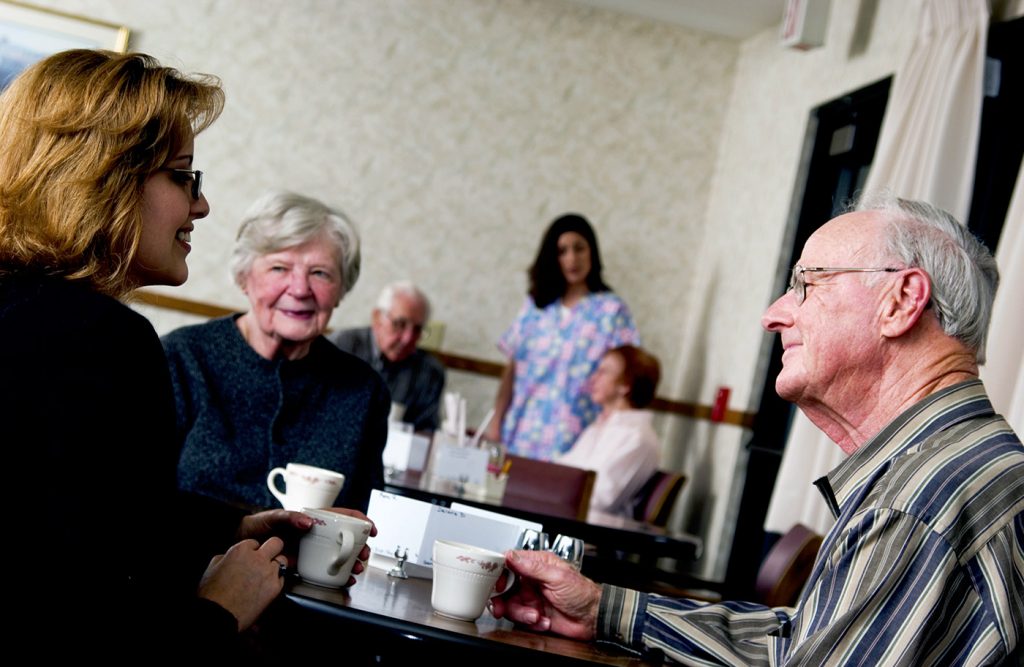
At a certain point, many of us become aware of our parents’ age. We become aware that they – the ones who fed and clothed us – are no longer the autonomous, self-assured beings they once were. This transition is difficult, emotionally and practically. On the one hand, it’s hard to know exactly when to make the leap to assisted living. And on the other hand, even if you do decide that your loved one requires more help than you can offer, it’s not so easy to make the transition. One hopes that elder parents will know when the time for change has come, but sometimes it’s not so simple. For this reason, it’s good to understand what to do when it becomes apparent that your loved one is in need of assisted living.
Objective Methods
To begin with, it’s important to note that there are, in fact, somewhat objective methods for determining whether your loved one is in need of assisted living. The first method is known as activities for daily living (or ADL) and the second is similarly called instrumental activities for daily living (or IADL). Each of these uses a point system to help you make an emotional decision with some objective rigor.
ADL and IADL
The first method attaches a single point (each of equal weight) to a series of activities that are essential for day to day living. These are: bathing, dressing, toileting, getting into and out of the bed, continence and feeding. It’s rather simple: if your loved one receives a five out of six, it’s likely that they aren’t in need of extra help. But if they get a much lower score (like a one or two), you may want to start gearing up for the transition to assisted living. IADLs are similar, except they aren’t as broad and refer to more specific tasks, like paying the bills or cooking food. This second method is used as a follow-up to the first and is paramount for professionals who want a detailed understanding of your loved one’s current state.
Doing What’s Best
These methods may appear somewhat cold and calculating. Though there is some truth to this, it is good to remember that making such a determination – difficult though it is – is essential for providing your loved one with a better quality of life. Thus, it can be useful to take some of the subjective elements out of the equation, such as the avoidance of tense conversations. Remember, it’s more important that your loved one gets the care they need.
Observation
In order to help a professional determine the ADL and IADL score, it’s a good idea to observe your loved one’s behavior. For instance, if they consistently leave the burner on after making tea or cooking food; if they seem socially cut-off from the world; or if they’ve stopped taking baths or grooming in any way, they may need extra help with day-to-day activities.
Transitioning
Once you decide – ideally with the help of a professional – that your loved one would be better off in an assisted living facility, you may need to have a difficult conversation. In some cases, your parent can be a full participant in the process, helping decide which facility is right for them and which level of care suits their needs. In other cases, your loved one may need more guidance – perhaps because they suffer from a debilitating mental illness such as Alzheimer’s or dementia.
Ideally, your loved one is involved throughout the process. As you go hunting for facilities, you can relay information back to him or her, asking for input about each option. You, your loved and the rest of the family, can also work together to figure out a payment plan. For instance, if your loved one was in the armed forces, he or she may have access to care through the VA. Or, if you have a large family, everyone can pitch in as much as they can afford. In the end, it can be very useful to hire a Senior Living Advisor – someone who understands the assisted living market and who can help put together a short list of facilities based on your loved one’s needs and preferences.
Starting the Conversation Early
To avoid resistance, it’s a good idea to introduce the idea of assisted living early on, prior to it’s being an absolute necessity. The earlier you start talking about it, the less surprising it will be when it becomes a reality.